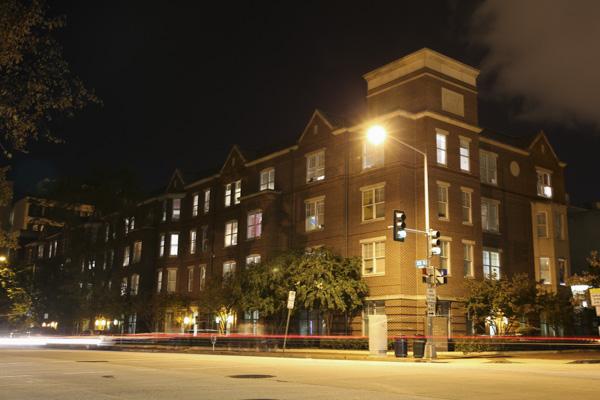The head recruiter for GW’s newest fraternity says he wants to reach out to students who were initially turned off by the stereotypes about Greek life.
Phi Delta Theta is set to recruit its first members for a chapter on campus after formal rush for other fraternities ends. The group’s top expansion consultant said students who join as the “founding fathers” at GW will have the opportunity to make the organization their own and decide how the chapter fits into overall student life.
Phi Delta Theta was chosen from six national fraternities that applied to join campus last spring. Greek life officials said they chose the organization because of its established alumni network in D.C. and strict zero tolerance hazing policy.
William Henderson, the national Phi Delta Theta expansion consultant for GW, said the organization aims to move past fraternities’ negative stereotypes.
Henderson added that Phi Delta Theta’s principles are friendship, sound learning and moral rectitude and that those values will be highlighted throughout the recruitment process.
Henderson and other national chapter representatives from Phi Delta Theta will offer information to potential new members in District House, the Marvin Center and Kogan Plaza for a few hours every day starting next week. They will also hold recruitment events like basketball games and get-togethers with Phi Delta Theta alumni in D.C., Henderson said.
The pledge process is slightly different from that of other fraternities because there will not be an official pledge class and new members will be called PhiKeia, Henderson said.
The new fraternity will hold interviews and elections for “around 20 something” officer positions this fall, Henderson said.
The Interfraternity Council voted to add new chapters nearly two years ago after half of the students who went through rush in 2014 ended up not joining a chapter. Since then, at least four fraternity chapters have been closed or suspended, including the suspension of Phi Kappa Psi and closing of Sigma Phi Epsilon.
Christina Witkowicki, the director of student involvement and Greek life, said the fraternity’s national organization will handle promotion and recruitment.
“GW will help the group understand the policies, procedures, and expectations of the university as well as how to navigate the resources available,” Witkowicki said.
IFC President Brandon Capece said every new organization is evaluated based on their values, philanthropy and potential community impact.
“Through our interactions with Phi Delta Theta, we believed that they would be able to have the greatest impact on our community here,” Capece said.
He added that although every chapter offers something unique to its members, Phi Delta Theta will allow students to shape the chapter’s presence on campus.
“This opportunity to build an organization from the ground up is a unique opportunity that not everyone gets to experience in their college career, but it’s an opportunity that offers unbounded potential for personal growth,” Capece said.
Phi Delta Theta is not the only new fraternity joining the IFC this year. Delta Lambda Phi will hold its own recruitment this spring, appealing specifically to gay, bisexual, transgender and progressive men. And all three Greek councils – the Interfraternity Council, the Panhellenic Association and the Multicultural Greek Council – are each looking to add up to three new chapters by 2018.
Joshua Bertalotto, the recruitment chairman of Phi Delta Theta at Johns Hopkins University, said the fraternity helps members become the best versions of themselves.
“We truly offer a unique experience that provides an environment in which brothers can grow together,” Bertalotto said. “We challenge each other academically, learn from each other culturally and, overall, we respect each other and our surroundings enough to be inclusive and be an asset to our campus.”








